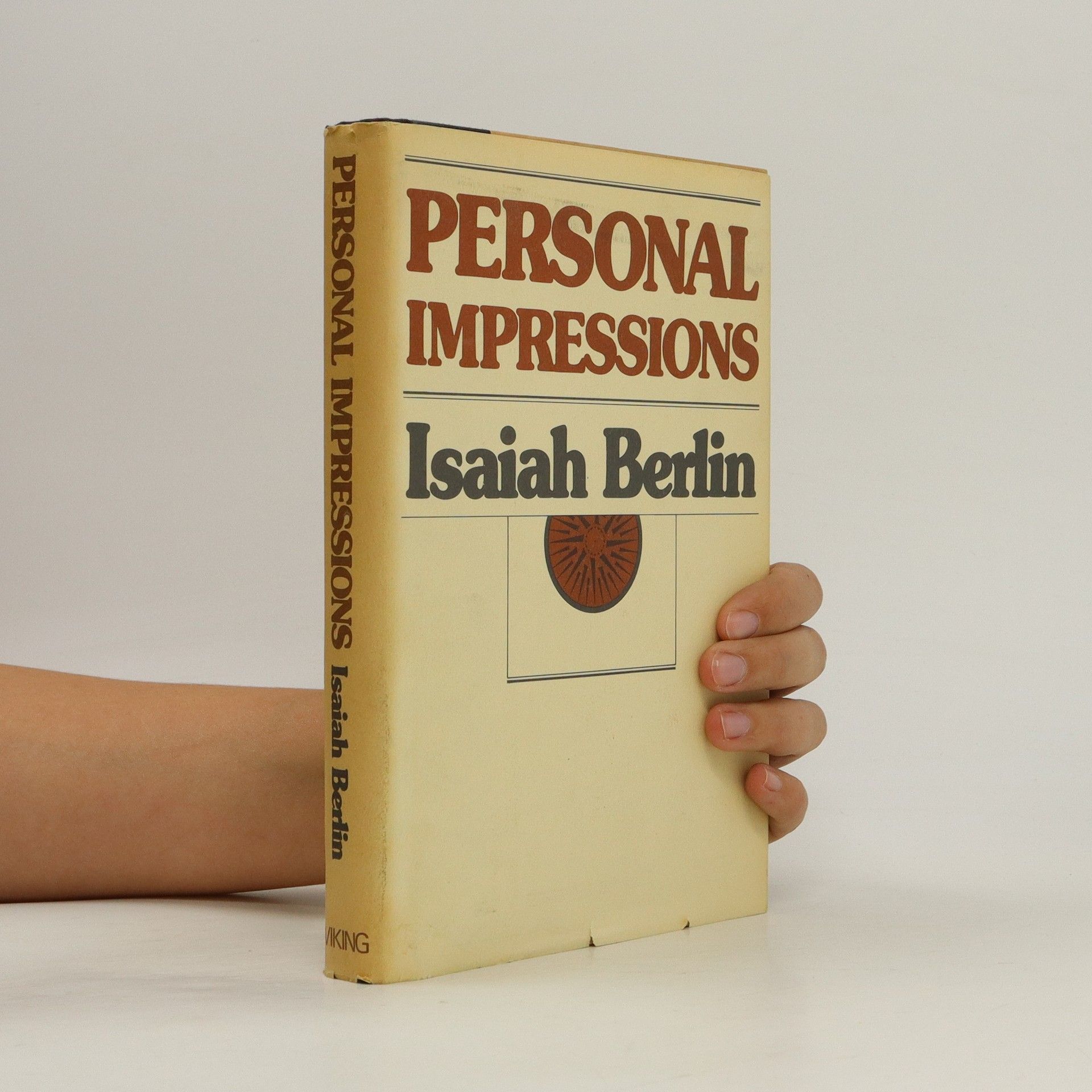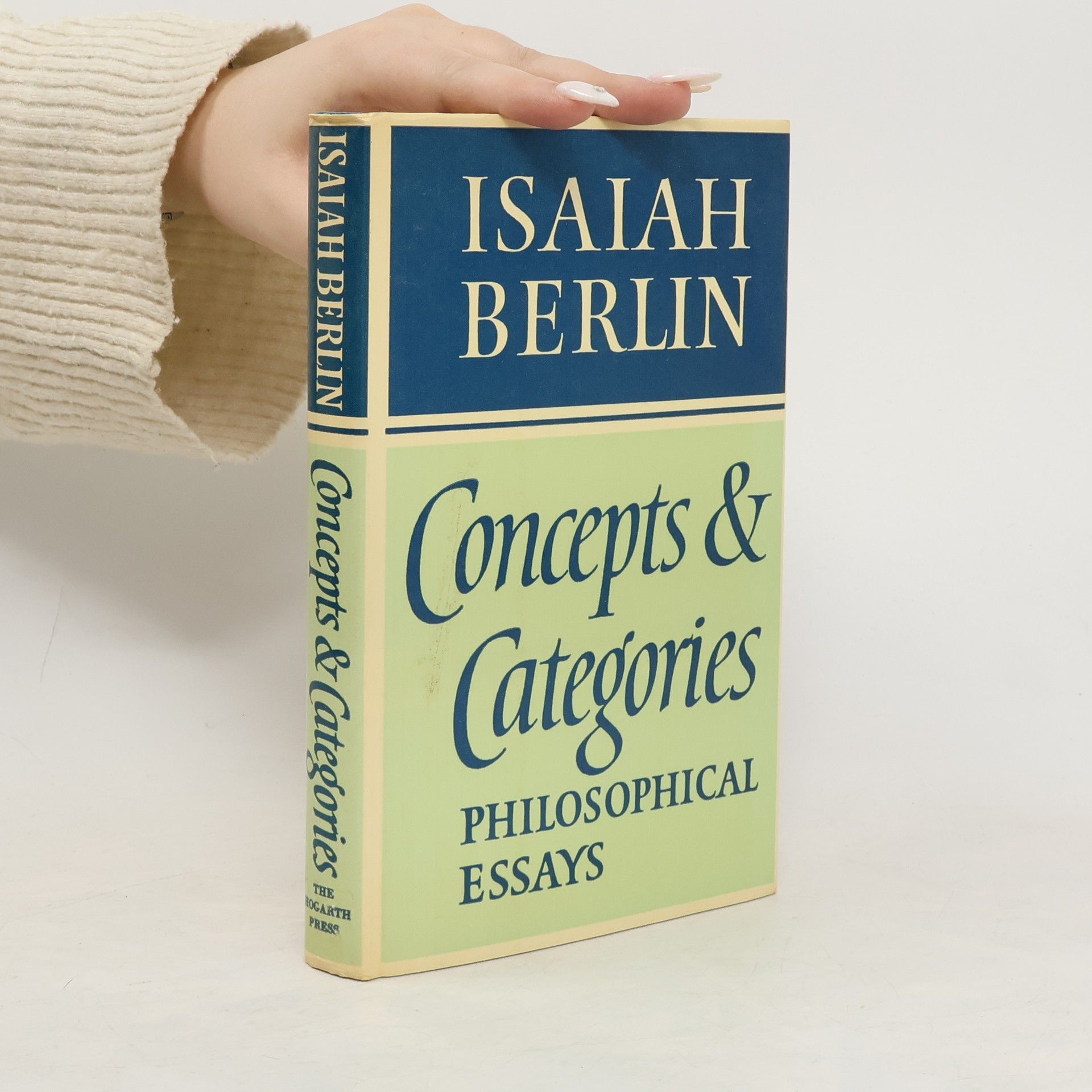"Out of the crooked timber of humanity, no straight thing was ever made".--Immanuel Kant. Philosopher Isaiah Berlin explores the complex, radical changes that have swept Western society as he proves to be "an activist of the intellect". "A beautifully patterned tapestry of philosophical thought. . . . A history of ideas that possesses all the drama of a novel, all the immediacy of headline news".--"The New York Times".
Isaiah Berlin Libri
Sir Isaiah Berlin fu un filosofo e storico delle idee, considerato uno dei principali pensatori liberali del XX secolo. Eccelse come saggista, conferenziere e conversatore. I suoi scritti esplorarono frequentemente la dicotomia della libertà, distinguendo tra libertà negativa —definita come assenza di vincoli esterni— e libertà positiva, che si riferisce all'autocontrollo e all'autodeterminazione. Berlin era profondamente preoccupato che il concetto di libertà positiva fosse stato storicamente suscettibile di abusi politici, portando spesso a giustificazioni per la coercizione e il totalitarismo, una traiettoria che contrappose al più sicuro ideale di libertà negativa. La sua difesa della libertà negativa, la sua veemente opposizione al totalitarismo e le sue esperienze lo resero una significativa voce intellettuale contro il comunismo durante la Guerra Fredda.


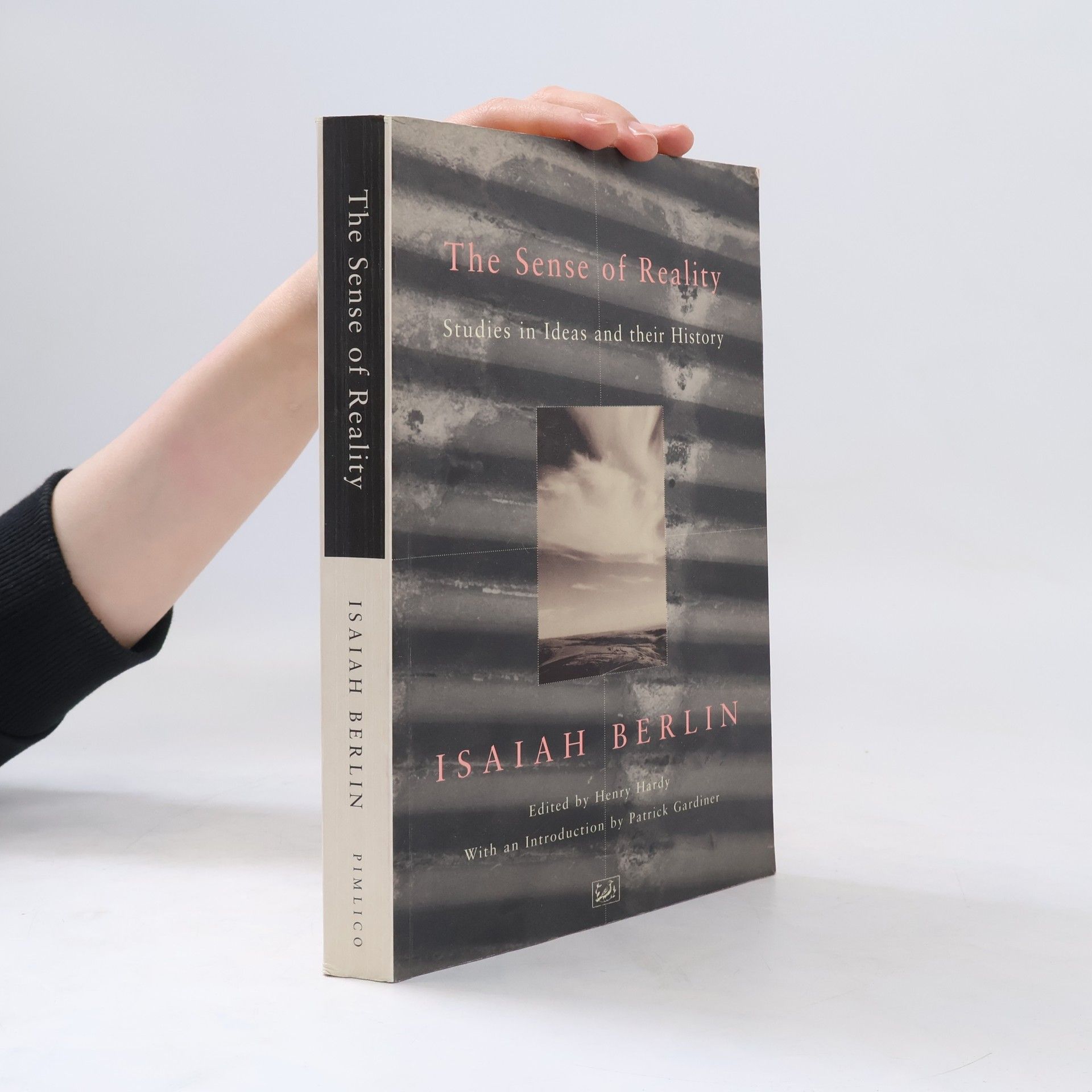
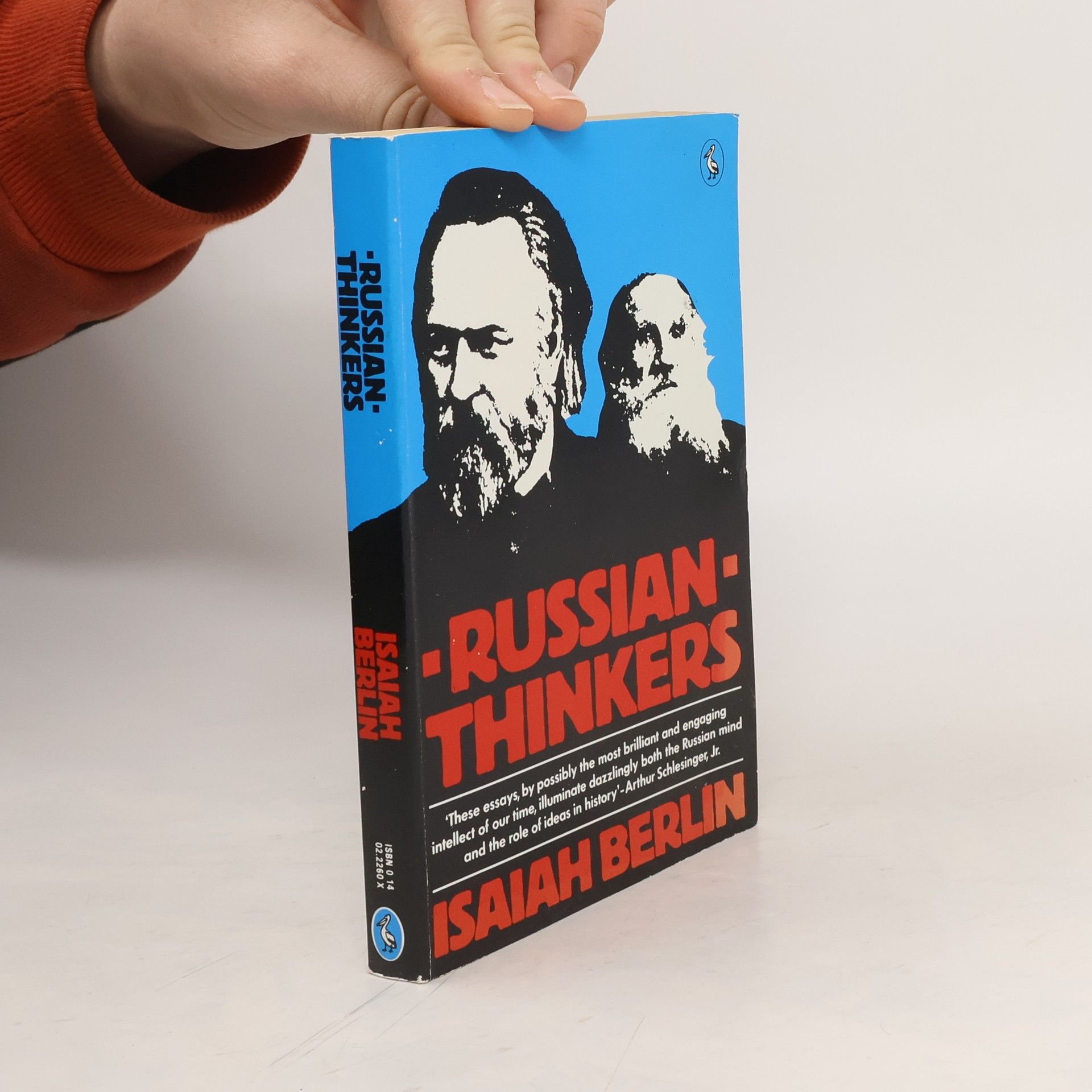
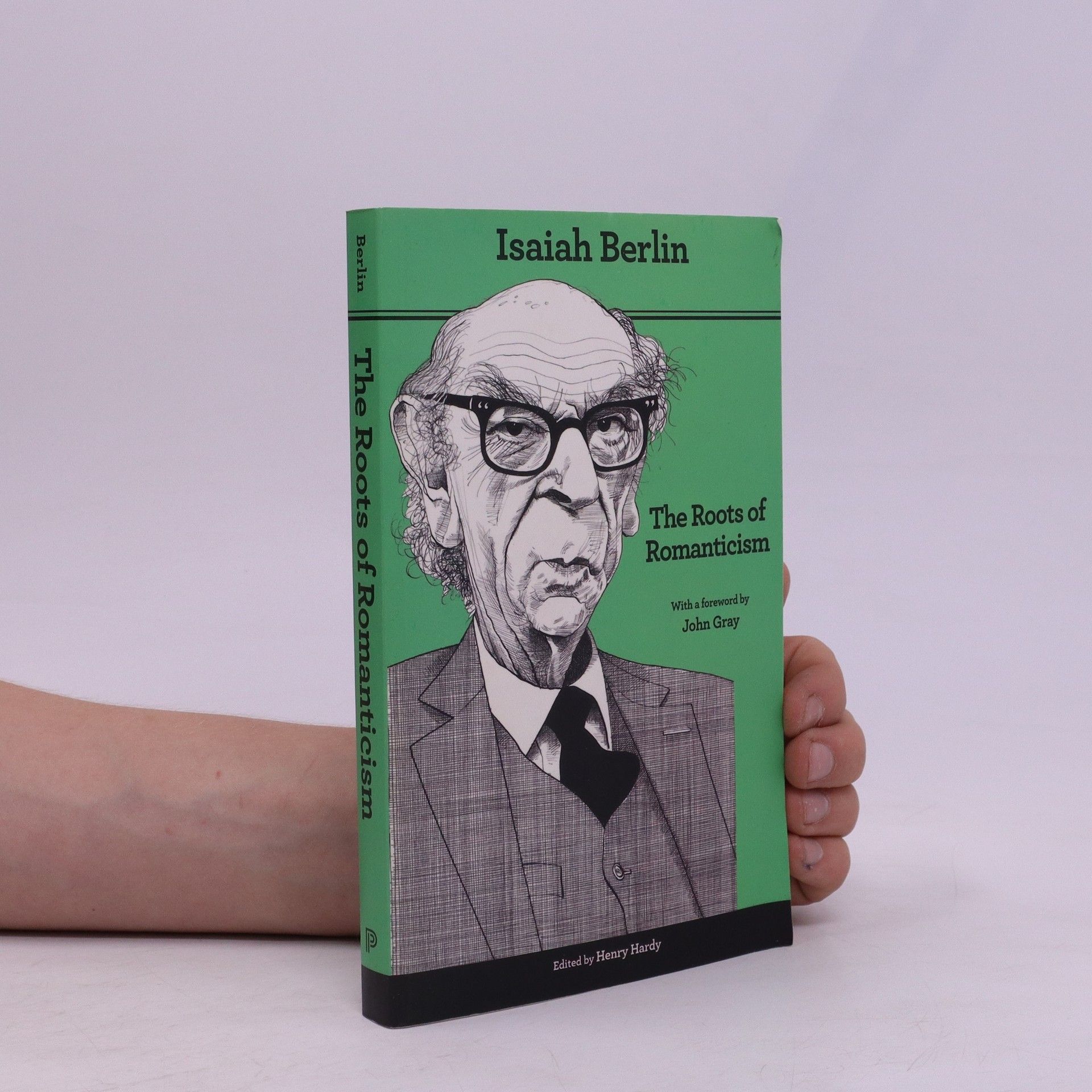


Building
- 704pagine
- 25 ore di lettura
In the period covered here (1960-75) Isaiah Berlin creates Wolfson College, Oxford;At the same time Berlin publishes some of his most important work, including Four Essays on Liberty - the key texts of his liberal pluralism - and the essays later included in Vico and Herder.
The Roots of Romanticism
- 248pagine
- 9 ore di lettura
Surveys the many attempts to define romanticism, distills its essence, traces its developments from its first stirrings to its apotheosis, and shows how it still permeates our outlook.
The theme that links these essays--written over thirty years--is the phenomenon of the Russian intelligentsia, which Isaiah Berlin describes as 'the largest single Russian contribution to social change in the world'.
Eight of the nine pieces in The Sense of Reality are published here for the first time. The range is characteristically wide: realism in history; the history of socialism; the radical cultural revolution instigated by romanticism; The title essay, starting from the impossibility of recreating a bygone epoch, provides a superb centrepiece.
Flourishing: Letters 1928-1946
- 816pagine
- 29 ore di lettura
The collection of personal letters showcases the life and intellectual development of Isaiah Berlin, highlighting his journey from a young pupil to a prominent thinker. It captures his experiences at Oxford, his move to the U.S. during World War II, and his return to Britain in 1946. The letters reveal his burgeoning intellectual abilities and zest for life, providing a personal glimpse into the mind of one of the 20th century's most significant philosophical figures.
Winston Churchill, Franklin D. Roosevelt, Virginia Woolf, Aldous Huxley, Albert Einstein, Boris Pasternak and Anna Akhmatova: Isaiah Berlin’s Personal Impressions collects the essayist and intellectual historian’s most remarkable portraits of prominent twentieth-century thinkers, writers and politicians. For this third, enlarged edition, ten new pieces have been added, including portraits of David Ben-Gurion, Maynard and Lydia Keynes, and Stephen Spender, as well as Berlin's autobiographical reflections on Jewish Oxford and his Oxford undergraduate years. Rich and enlightening, Personal Impressions is a vibrant demonstration of Berlin's belief that ideas truly live only through people.
Enlightening: Letters 1946 - 1960
- 854pagine
- 30 ore di lettura
Takes up the story of the author when, after war service in the United States, he returns to life as an Oxford don. This title charts years of academic frustration and self-doubt, the intellectual explosion when he moves from philosophy to the history of ideas, his growing national fame as broadcaster and lecturer.
Freedom And Its Betrayal
- 256pagine
- 9 ore di lettura
Freedom and its Betrayal is one of Isaiah Berlin's earliest and most convincing expositions of his views on human freedom and the history of ideas, views which later found expression in such famous works as 'Two Concepts of Liberty', and were at the heart of his lifelong work on the Enlightenment and its critics. schovat popis
"The goal of philosophy is always the same, to assist men to understand themselves and thus to operate in the open, not wildly in the dark."--Isaiah Berlin This volume of Isaiah Berlin's essays presents the sweep of his contributions to philosophy from his early participation in the debates surrounding logical positivism to his later work, which more evidently reflects his life-long interest in political theory, the history of ideas, and the philosophy of history. Here Berlin describes his view of the nature of philosophy, and of its main task: to uncover the various models and presuppositions--the concepts and categories--that men bring to their existence and that help form that existence. Throughout, his writing is informed by his intense consciousness of the plurality of values, the nature of historical understanding, and of the fragility of human freedom in the face of rigid dogma. This new edition adds a number of previously uncollected pieces that throw further light on Berlin's central philosophical concerns, and a revealing exchange of letters with the editor and Bernard Williams about the genesis of the book.
